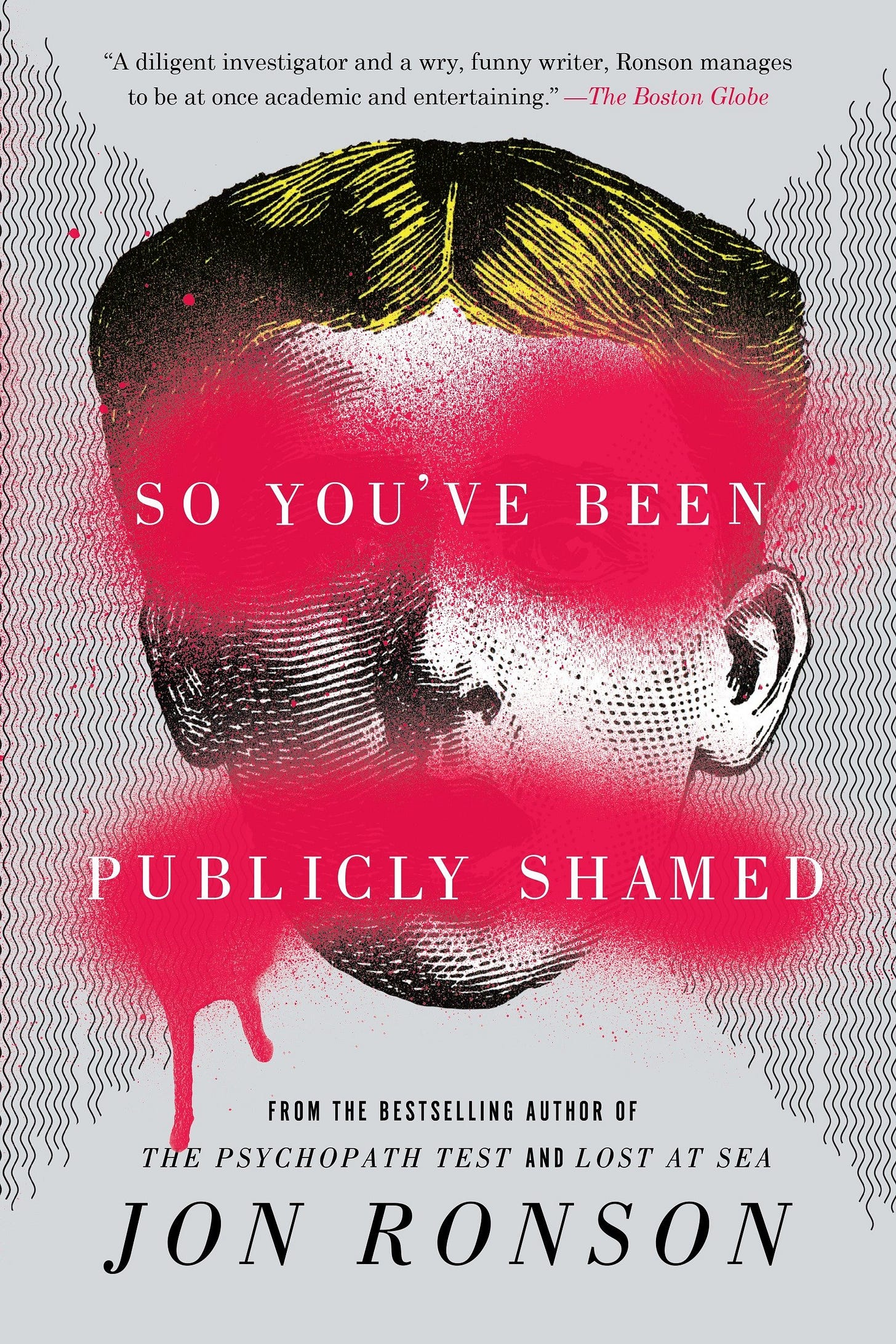So You've Been Publicly Shamed by Jon Ronson
5/5
It can be tempting to treat people whom we interact with online as two-dimensional characters in a video game, characters whom we can “defeat” for points awarded in the form of attention and social capital. Many people in fact do seem to behave like that. Given how much social life has migrated online, however, doubly so since the pandemic, its become clear that we need norms of online behavior that reflect the fact that we actually are interacting with other human beings here. People have thoughts and feelings that require consideration, and they also need to be given respect just as we would respect people in real-world settings. If you’re being cruel or abusive to someone online, that doesn’t make it any less outrageous than mistreating them in person.
So You've Been Publicly Shamed is an analysis of the psychology of public shaming. Technology has made our ability to shame others more powerful than ever, as we can enlist essentially the entire planet to all congregate and denounce one person in unlimited “pile-ons.” Although we tend to treat it as a joke, the impact of shaming another human being can have dire consequences. Although written light-heartedly at times, this book is a surprisingly serious and even hard study of how shaming impacts human psychology. Ritual humiliations inflicted before modernity, like tarring and feathering someone, flogging them in public, or simply sending out notice that they were a bad person, frequently destroyed peoples lives. It also turned many into the types of people who felt the need to destroy the lives of others. Many serial killers, people who were guilty of incomprehensible crimes, were people who were deeply shamed at a young age. This shaming happened to the point where some part of their humanity died, never to be replaced. Although these are extreme cases, even inflicting a fragment of that onto someone is something of which we should be wary.
This book is a very important call to pause and think about what we are doing when interacting with others, online and offline. Every one of us makes mistakes in our lives and statements, but we should think twice before being cruel and unforgiving when we see others slip up. We need to be generous and leave the door generally open to redemption, because the alternative is a world, already emerging, where everyone is simply suspicious, afraid, and at odds with one other, while secretly nursing inner wounds. This book was well-written and really surprised me in its intellectual seriousness. If you ever feel the temptation to join a pile-on targeting some hapless person online, even someone who may have truly erred, Ronson has a simple recommendation: Don’t.

